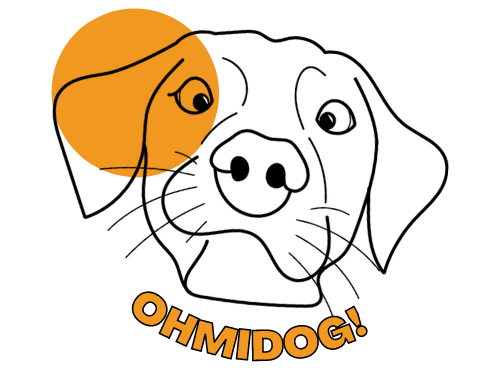Usually, people think that when dogs eat something from outside, or anything that they shouldn’t be eating is the only reason for the stomach issues, but that is not true. Many people do not know that many dogs face certain digestive issues and are clueless about them. This is why you must know about dogs’ digestive problems and how you can help them.
Many well-meaning owners are unaware that their dog’s regular stomach problems, including symptoms such as nausea, vomiting, diarrhea, or other more serious concerns, are the result of poor nutrition choices they’ve made for them. These are some of the main ways through which you can treat them and trust a reliable source that can help you treat all the problems and ensure that your pet is healthy. Further in this article, we will talk about some of the common digestive issues in dogs and how probiotics help you in the future.
Some Of The Common Digestive Issues In Dogs And How Probiotics Can Help

Let’s check out some of the essential things related to the digestive issues that dogs face and the symptoms; also, we will discuss the major ways to treat them and how probiotics help a lot to pets. If you want to get the best probiotics for dogs, then you can visit this site and get deeper information about them. Further, we will discuss some of the major digestive issues and the advantages of probiotics.
Constipation
You might already know some general things about constipation, but it just sounds normal but can cause bigger problems in the future. Feces get drier, tougher, and harder to pass the longer they stay in the colon. Your pet needs help in passing down the feces with ease. Obstipation is a persistent form of constipation where the animal is unable to urinate successfully. Constipation that lasts for a long time can be brought on by an obstruction inside the intestines, a restriction from the outside, or neuromuscular issues with the colon itself.
There are several ways to treat it; for the treatment, you can use a probiotic with a lot of moisture to it. Also, with the proper remedies, you can immediately start by making your pet drink a lot of water. Mild constipation is frequently treated by switching to a high-fiber diet, preventing the dog from eating bones or other objects; you should try to provide them food that is full of moisture, provide constant access to water, and use appropriate laxatives, which are usually done for a limited time. You can even consult the doctor if laxatives are suitable for your dog or not. Laxatives are recommended; they will be safe for your pet.
Stomach Inflammation (Gastritis)
Gastritis is characterized by sudden or chronic vomiting infections caused by stomach inflammation. Stomach inflammation is not something dogs commonly face, but it can cause them many problems. Eating irritating or injuring the stomach lining, vomiting parasites, systemic illnesses, drugs, or poisons can cause it. Many times, some dogs face the problem of indigestion because of a lot of canned food.
It irritates the stomach and gradually leads to vomiting. Vomiting occurs suddenly in cases of acute gastritis, and the vomited material may contain evidence of whatever the pet ate, and usually, at this time, they eat the grass. Bile, froth, fresh blood, or digested blood may also exist. These are some of the symptoms through which you can get to know what your dog is facing. Another symptom is excessive thirst, frequently followed by vomiting in dogs suffering from acute gastritis. Also, when their stomach is irritated or disturbed, you will see that diarrhea is also there. Here probiotics play a huge role as they release the relieving inflammatory response, which lowers the stomach inflammatory causes.
Food Allergies Is Also Common
Many pet owners don’t know that their pet might have some food allergy and when they get to know about it becomes hard for them to treat the consequences. If your dog is vomiting and has diarrhea, it could be due to a food allergy. This is one of the symptoms to find out whether your dog has any sort of allergy.
According to the studies, the most common food allergens for dogs are chicken, beef, dairy, and eggs. Many dogs can’t digest the meat and some have really bad responses to the allergy so you can even get your pet tested for it. If your veterinarian suspects a food allergy, he or she may recommend an elimination diet. During the diet, you will feed your dog a new type of food, then gradually introduce the foods that may be causing the allergy.
How is probiotics helpful in digestive issues?

In essence, probiotics are given to keep a dog’s gut health in check and maintain a desired intestinal bacteria balance. It immunizes their digestive system and ensures that even if there are any bad bacteria it can help them to control their digestive system. The balance of intestinal microorganisms should be able to be preserved spontaneously in a usually healthy dog.
You can go for different kinds of probiotics and it is essential to rely on a reputable company that provide good quality probiotics which ensures that your dog has a healthy metabolism. But an imbalance can happen when there is stress, disease, or starvation. When their gut microorganisms are out of whack, probiotic pills seem to work well for many dogs. If you provide the probiotics to the dogs you will see that there will be a change in their mood also, they will seem even happier.
Bottom Line
If your dog is not feeling well because of the bad stomach. Probiotics do help a lot in the metabolism and ensure that it calms down the indigestion problem. You can consider this as your guide and in the future when you feel your dog is having digestive problems you can add the probiotics in their diet.

